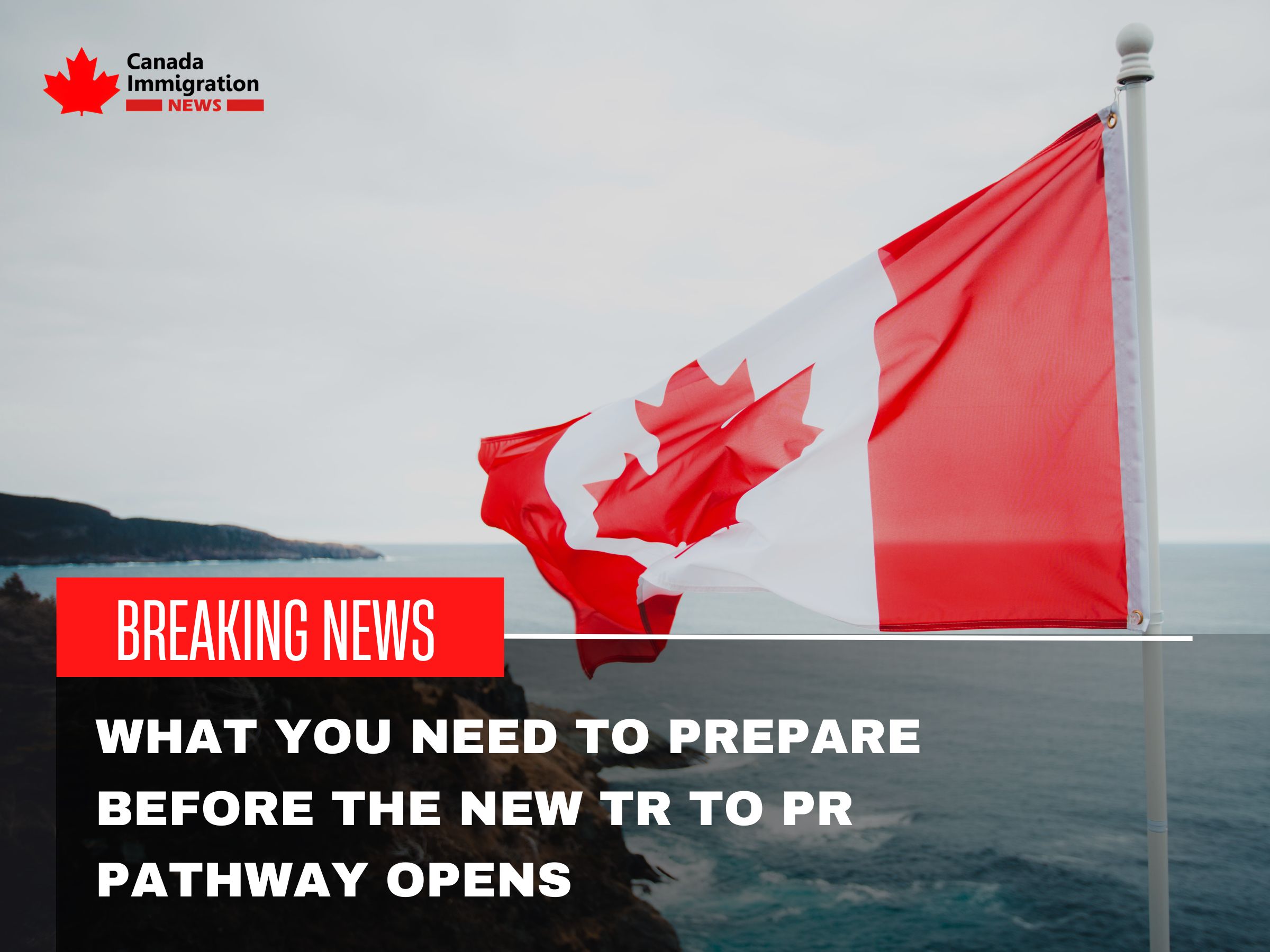By admin
What You Need to Prepare Before the New TR to PR Pathway Opens
Canada is set to launch a new temporary to permanent residence (TR to PR) pathway, and having the right documents prepared in advance could make all the difference for applicants looking to secure permanent residence.
When the first TR to PR pathway opened in 2021, it reached its intake limit on the very same day. Many eligible applicants missed their chance simply because they did not have essential documents, such as valid language test results, ready to submit.
Certain documents, including police certificates, can take months to process. Experts recommend gathering and organizing all your paperwork well in advance to ensure a smooth application process.
According to the latest Immigration Levels Plan, the Canadian government will offer a one-time measure allowing around 33,000 temporary residents to transition to permanent residence in 2026 and 2027. To make sure you don’t miss out, here is a detailed guide on the documents you should prepare now.
Documents Every Applicant Should Prepare
| Document Type | Supporting Documents |
| Proof of language proficiency | Approved language test results from CELPIP‑General, IELTS General Training, PTE Core, TEF Canada, or TCF Canada |
| Criminal background check | Police certificates from all countries where you lived 6+ months since age 18 |
| Education proof | • Educational Credential Assessment (ECA) for foreign education• Transcripts for Canadian education |
| Travel history | • Travel logs• Flight confirmations• Passport pages |
| Employment history | • Complete employment records• Employer reference letters• T4s/NOAs• Copies of employment contracts |
| Current employment in Canada | • Work permit• Employer reference letter• Recent pay stubs• Employment contract |
| Organizational affiliations | • List of volunteering, charitable donations, memberships• Reference letters• Donation receipts |
| Identity documents | Passport, birth certificate, marriage or adoption documents |
| Translations | Certified translations or translator affidavit for non-English/French documents |
For Applicants Applying from Inside Canada
| Document Type | Supporting Documents |
| Proof of status in Canada | • Valid work or study permit, visitor record• Entry stamp or electronic record• Proof of maintained status if applicable |
Documents for Accompanying Family Members
| Document Type | Supporting Documents |
| Identity documents | Passports, birth/marriage certificates, civil status documents |
| Travel history | Trips for spouses/children aged 18+ |
| Police certificates | Certificates for adults 18+ who lived abroad for 6+ months |
Documents Needed in Specific Situations
| Document Type | Supporting Documents |
| Letter of Explanation | Explaining gaps, discrepancies, or missing documents |
| Common-law relationship proof | Evidence of cohabitation (bank accounts, leases, bills), plus form IMM 5409 |
| Name change certificates | Proof of any legal name changes |
Key Requirements and Tips
- Language Test: Language tests are mandatory to prove proficiency in English or French. Results must be from an IRCC-approved provider and valid on the day of application. Keep in mind that most language test results are valid for two years, and expired results will require a retest.
- Police Certificates: Certificates are required for all countries where an applicant or accompanying adult has lived for six months or longer since turning 18. Certificates from your current country must be issued within six months of your PR application.
- Education Proof: Foreign education typically requires an ECA to verify Canadian equivalency, valid for five years. Canadian education only requires transcripts and proof of graduation.
- Travel History: A detailed travel log covering the past 10 years (or since age 18) is necessary. IRCC will cross-check it against police certificates and background declarations.
- Employment Verification: IRCC verifies your work experience using employer letters, T4s/NOAs, contracts, and pay stubs. Letters should detail duties, hours, salary, and dates of employment.
- Translations: All non-English/French documents must have certified translations or affidavits from a qualified translator. Family members cannot provide translations.
Preparation Tips
- Scan and label each document clearly (e.g., PoliceCertificate_LastName_FirstName_YYYY-MM-DD.pdf).
- Check validity windows for language tests, ECAs, police certificates, and passports.
- Provide complete history with no gaps.
- Include Letters of Explanation for missing documents or discrepancies.
- Double-check all documents before submitting to ensure everything is complete and up-to-date.
Preparing your documents ahead of time is essential. It increases your chances of submitting a complete PR application without delays and ensures you are ready when the TR to PR pathway opens.
